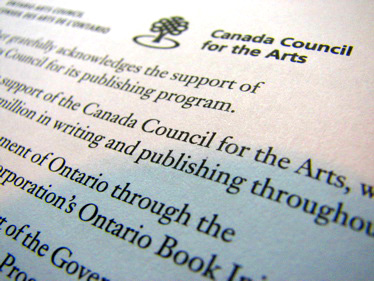A judge's journal: part three

The Commonwealth of Nations (née British empire) is an association of more than fifty countries. One of the key things they have in common--a major legacy of onetime imperial rule--is the English language. Lord knows how many books of fiction are published in the entire Commonwealth each year (I'm sure Google knows too, but I'm too lazy to do a search just now). To make the job of judging the Commonwealth Writers' Prize a little more manageable, therefore, the prize administrators divide the Commonwealth nations into four big geographical groups for the first round of judging. As many Antilles readers will know, all the New World Commonwealth countries fall into the Caribbean and Canada region.
The population of the Commonwealth Caribbean is under six million (if my math is correct). The population of Canada is more than five times larger, about thirty-three million. The Caribbean publishing industry is dwarfed by its Canadian equivalent by an even greater order of magnitude. From a practical literary perspective, this obviously means that many more Canadian books are published each year than Caribbean ones. From a CWP judge's perspective, it means that more Canadian books are entered for the prize than Caribbean ones, more Canadian books get shortlisted, and more Canadian books win the regional awards for best book and best first book.
A statistical interlude (again, I hope my math is correct): ten Caribbean books have won regional awards since the CWP was established in 1987, and thirty-four Canadian ones--unless you count Austin Clarke as Barbadian, whatever his passport says, in which case it is eleven to thirty-three. It is actually not a bad ratio, considering the relative sizes of our populations--see paragraph above. So three cheers for the Caribbean.
This is all preamble to the fact that so far, of the books that have arrived in my judging pile, Canadian writers predominate. Now, it is still early days. The final deadline for late entries to the prize is 31 December. Perhaps--I hope--there will be a flood of Caribbean books between now and year-end. If you are a writer from the Caribbean with a book eligible for the 2009 CWP--check the details here--remind your publisher to submit your book. If you are the publisher of an eligible Caribbean book, consider yourself reminded.
Not that I mind the little pile-up of new Canadian books. As a reader based in the Caribbean, I know relatively little about the cutting edge of contemporary Canadian fiction. Judging the regional awards is like being given a snapshot of the current Canadian literary scene. I've already come across a couple of remarkable Canadian writers whose names I hadn't heard before, and a couple of smaller publishing houses doing brave, interesting work. And here's another thing that's really caught my attention. Every single book submitted so far by a Canadian publisher has a note on its copyright page acknowledging the support of the Canada Council for the Arts, and usually a provincial arts council too (you can read more about the Canada Council's support for publishers here).
To the best of my knowledge--and I'd be thrilled to be informed otherwise--no Commonwealth Caribbean country can boast an agency, whether state-funded or private, that gives regular, consistent, and substantial financial support to our small, struggling publishing industry. Occasionally a ministry of culture or a large corporation will give an ad hoc grant to a specific book project. The government of Guyana funds the admirable Guyana Prizes for Literature, but that benefits publishers only indirectly, if the sales of a prize-winning book increase. The government of Barbados has funded the revival of the journal Bim--I'll post more about that one of these days--and the Central Bank of Barbados funds the annual Frank Collymore Literary Awards. But there is simply no equivalent in this part of the world to the kind of basic support that the Canada Council for the Arts gives to Canadian publishers--or that the Arts Council of England gives to many small British publishers, or that various national and regional arts bodies give to small American publishers.
(And why do publishers need this kind of support? Because literary publishing involves very narrow profit margins, major up-front capital (printing and shipping books is expensive), and, barring the occasional best-seller, very slow returns on investment--but its social value is immense.)
You could argue that Caribbean governments and the Caribbean private sector can't afford these kinds of programmes. This was the substance of a very public argument between Derek Walcott and Guyanese president Bharrat Jagdeo at Carifesta X last August. Let me just say that for the most part I take the Walcott line, which you could summarise with an old political slogan: give us bread and roses. Every Caribbean government talks about the importance of arts and culture in shaping national identity etc etc etc, but publishing, writing, and the literary arts seem to be our lowest priority when it comes to tangible support--dollars and cents. And, frankly, regional publishers must take some of this blame as well. One of the chief disappointments of Capnet, the Caribbean Publishers Network--whose website was down, last time I checked--has been its failure to effectively lobby for practical public and private sector support for regional publishing houses.
These are issues I think about constantly. The CRB is incorporated as a not-for-profit. I spend much of my time trying to raise the funds to keep the magazine going. There is no Caribbean arts council I can approach for support, no Trinidad and Tobago arts council (in a country whose latest annual budget calls for TT$50 billion in expenditure). No regional equivalent of the Prince Claus Fund, the Dutch government agency whose help has allowed the CRB to survive over the last year. I think it's wonderful that the Dutch government feels the CRB does some good for the world. I wish the Trinidad and Tobago government felt the same.
I may seem to have strayed quite away from the subject of the CWP. I haven't, really. My final observations: of all the books entered for the 2009 prize that I've received so far, a single one is published within the Caribbean. And even the other "Caribbean" books in my judging pile are published elsewhere.








2 comments:
It is, frankly, ridiculous that in the twenty-first century, with most countries in the Anglophone Caribbean independent, you have to rely on the kindness of a Dutch stichting for the survival of the CRB. Whatever happened to wi lickle but wi tallawah (or whatever the Trini equivalent is)?
It is not sufficient for CARICOM governments to poor-mouth. Culture, literature, traditional music, the visual arts are important elements in the identity of the region. We are not all reggae, soca, and tourist attractions. And if that's what they want to push the region as, they need to have their heads and hearts examined.
really enjoyed reading your judge's posts N. i think the turn away from fiction toward 'reality' prose is something that happens to a lot of males. Very few men read novels or any fiction for that matter (as for poetry...), its one of the reasons i hesitate to write fiction actually, cuz i don't really want to be talking to only half the population.
and yes its a real shame that you can't get support either private or public in oil rich tnt. here in ja we have the Chase Fund at least.
but in the meantime three cheers for the Prince Claus Fund! where would we be without them?
Post a Comment